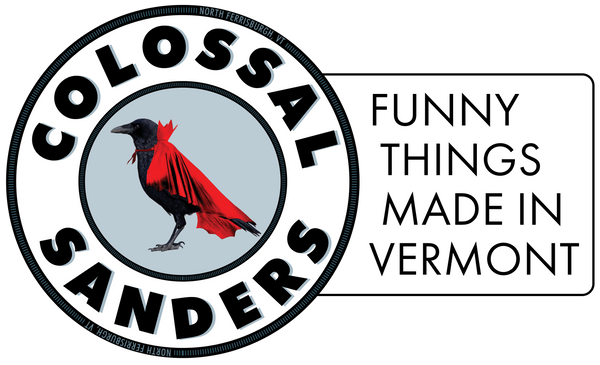The Canned Air Story
 The Accidental Discovery
The Accidental Discovery
Here's what's interesting about trying to make a joke product.
The plan was simple: sell canned Vermont air for $10. The most absurd souvenir imaginable. Pure novelty. Zero function.
But there was a problem.
Every canned air product that exists uses rigid containers. Steel or tin with thick walls that don't flex. They look substantial and professional. Like something you'd actually want to put on a shelf, even though the whole premise is ridiculous.
That's what we wanted too. Rigid cans. Official-looking. The kind that says "yes, this is a joke, but we committed to the bit."
Except nobody in Vermont makes rigid cans anymore. We checked around. Nothing. The equipment doesn't exist here, and any options to buy canning equipment were impractical. The idea nearly ended there.
What Vermont does have is breweries. Lots of them. And breweries have canning lines that run thin aluminum at reasonable prices for small batches. And after a happenstance meeting with a local brewer and sharing our can-undrum, curiosity got the better of all parties.
So we gave it a shot. Aluminum beer cans. Flexible walls. Not what we wanted, but it was what we could get.
The first batch came back from the brewery and honestly? We were a little disappointed. These cans felt...flimsy. They didn't have the heft and permanence of the rigid containers we'd imagined people might pay $10 for.
Then, a good question was asked: "WHY isn't the can rigid?"
Not "why didn't you make it rigid?" but "what happens because it's not rigid?"
We started thinking about what flexible walls actually do. The air inside is hermetically sealed at a specific pressure. But the walls can move. So if atmospheric pressure outside changes...
Curious, we prepared a bowl of steaming water and brought in a soft and squishy can from the cool garage. Holding it in the warm water, the can became noticeably firm within seconds.
That's when it clicked. The thing we settled for, the limitation we were frustrated by, had accidentally turned into the entire point.
Traditional rigid cans just sit there. They're designed specifically not to respond to environmental changes. The beverage industry spent decades perfecting containers that maintain their shape regardless of external conditions.
But flexible aluminum responds to everything. Altitude. Weather. Temperature. The "flaw" in our design was actually a feature we didn't know we were building.
We'd set out to make people laugh at the absurdity of paying for air. We accidentally made them a barometer. An altimeter. A handheld demonstration of atmospheric physics that works without batteries, calibration, or any moving parts.
The constraint became the innovation.
Which is maybe the real lesson here: sometimes you stumble into making something useful while trying to commit to a stupid joke. And sometimes the thing you can't afford to do properly is exactly what makes the whole thing work.
We're still selling air for $10. It's still absurd.
But now it also teaches physics.
Come for the oddity, stay for the wonder.
